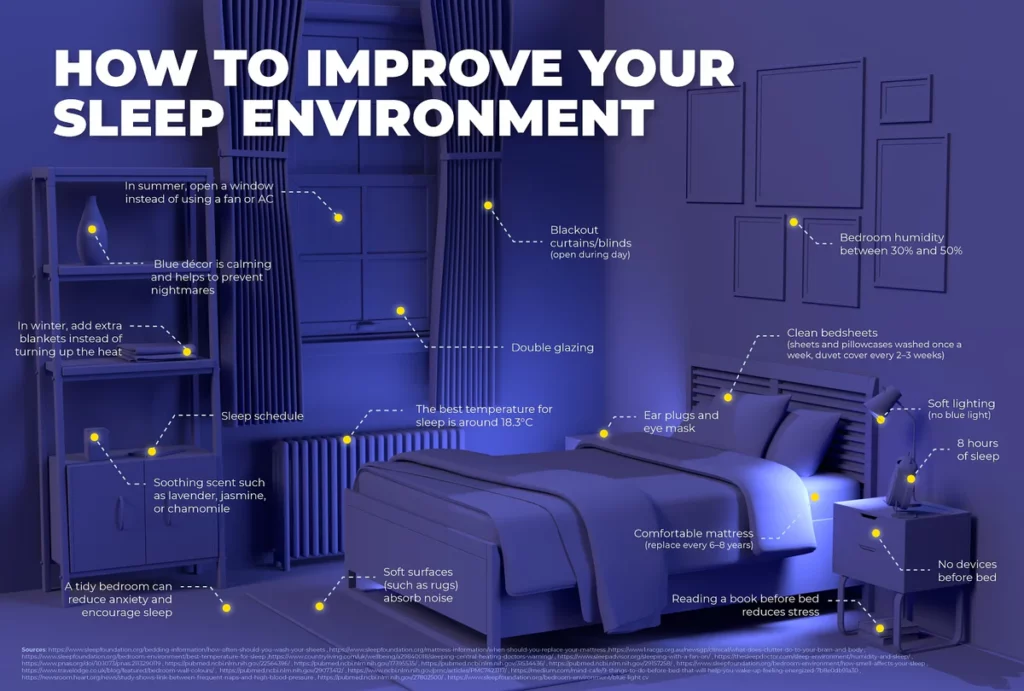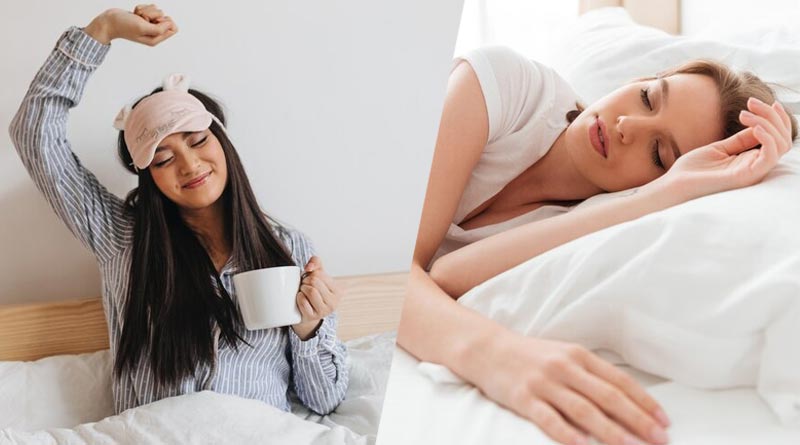Sleep hygiene is the set of behaviors and externally applied stimuli that help to create healthy sleep. It covers the right choice of environment to facilitate sleep as well as means and ways to develop the right sleeping schedules. Adhering to sleep hygiene principles means that one can enhance the quality of sleep hence waking up feeling fresh during the morning. Everybody faces some sleeping problems at some point in their lives; these may range from difficulty in falling asleep and waking throughout the night to being tired in the morning. These problems range from the ability to perform at work, to mood swings and instability in the relational aspect most of people’s lives.
Understanding Sleep

The period of sleep is subdivided into many cycles, and one cycle itself is about 90 minutes. These cycles alternate between two primary phases: These cycles alternate between two primary phases:
- Non-Rapid Eye Movement (NREM) sleep: This phase is known as the nonrapid eye movement phase, and it comprises four sub-phases starting from light sleep to deep sleep. It is agreed that deep sleep is crucial for maintaining and repairing all the body tissues and growth.
- Rapid Eye Movement (REM) sleep: Most dreaming happens at this stage- end of the night. It is important to the body, especially in cognitive processes such as memory and learning.
Insufficient sleep can lead to a cascade of problems: Insufficient sleep can lead to a cascade of problems:
- Physical consequences: Vulnerable to infections, are at higher risk of developing chronic conditions including heart disease, and diabetes, and have reduced functional mobility.
- Mental effects: Loss of concentration, changes in their mood, being easily agitated, and possibly developing anxiety and depression.
- Cognitive issues: Cognitive symptoms include memory loss, and deterioration in problem-solving skills and in making decisions.
Creating a Sleep-Conducive Environment

First off, a bedroom should be a place where you sleep hence should be designed or constructed in that manner. It is important to design the environment to fit the purpose of getting a restful night’s sleep.
The Ideal Sleep Environment
- Temperature: The ideal temperature is low, which is usually around sixty-five Fahrenheit or eighteen Celsius.
- Light: Nighttime makes your body release melatonin the sleep hormone into your body. Sleep in a completely dark room put up a curtain over the window or use an eye mask.
- Noise: The best condition, therefore, is to minimize noise; if that’s not possible, the patient can wear earplugs, use fans, or white noise generators.
Bedroom Setup
- Clutter-free: As a result, cleanliness and tidiness of the bedroom helps to relax.
- Comfortable Bedding: Get the best and most comfortable mattresses you desire, the right pillows, and quality bedding products.
- Tech-Free Zone: Do not fall asleep with the phone, television, or laptop close to you and in your bedroom. The light it emits is blue, and blue light interrupts sleep.
Establishing Healthy Sleep Habits
Consistent Sleep Schedule

A regular sleep schedule plays a key role in controlling your body’s internal clock also called the circadian rhythm. This natural cycle affects when you sleep and wake up. Going to bed and getting up at the same times every day helps sync your body’s internal clock with the world around you. This leads to better sleep quality and more consistent rest.
Create a Relaxing Bedtime Routine
A calm pre-sleep routine tells your body it’s time to slow down and get ready for sleep. You can do relaxing things like reading a book, taking a warm bath with Epsom salts, or doing some gentle yoga or meditation. These activities help lower stress and worry making it easier to fall asleep.
Make Your Bedroom Sleep-Friendly
Turn your bedroom into a place that helps you sleep well. Keep it dark, quiet, and cool. Get a comfy mattress, pillows, and bedding that you like. A tidy room helps you feel calm and relaxed. Think about using dark curtains, earplugs, or white noise machines if you need them.
Cut Back on Screen Time

Electronic devices like phones, tablets, computers, and TVs give off blue light. This light stops your body from making melatonin, a hormone that helps you sleep. Using screens less before bed lets your body make more melatonin on its own. This helps you fall asleep faster and sleep better.
Be Careful What You Eat
Eating big meals, drinking coffee, or having alcohol near bedtime can make it hard to sleep. Spicy food can upset your stomach. Coffee and alcohol can mess up your sleep patterns. Try to eat light snacks that are easy to digest. Stay away from things that wake you up for a few hours before you go to bed.
Exercise Often
Working out helps you sleep better. But when you do it matters. Do medium-hard exercise during the day to use up energy and feel less stressed. Don’t do hard workouts right before bed. They can make your body too warm and make it tough to fall asleep.
Keep Stress in Check

Stress can mess up your sleep by boosting cortisol, a hormone linked to the fight-or-flight response. To combat this, make relaxation a part of your day. Try things like meditating, taking deep breaths, or tensing and relaxing your muscles one by one. These tricks can help you chill out and get ready for bed.
Be Smart About Naps
Quick naps can perk you up, but long or too many naps can make it hard to sleep at night. If you need a nap, keep it short – about 20 to 30 minutes. Also, try not to nap late in the day. Napping too close to bedtime can make it tough to fall asleep when you want to.
Cut Back on Stimulants
Caffeine and nicotine can keep you awake. Try to drink less coffee, tea, and soda, and stay away from nicotine products in the afternoon and evening. These things can keep you wired for hours after you use them.
Get Help from a Doctor When You Need It
If you often have trouble sleeping even after trying good bedtime habits, talk to a doctor. They can look at how you sleep, spot any sleep problems (like not being able to fall asleep, breathing issues while sleeping, or legs that won’t stay still), and suggest ways to help you sleep better.
By implementing these sleep hygiene practices, you’ll not only improve your sleep quality but also enhance your physical and mental health. Remember, consistent effort is key to reaping the long-term benefits of restful nights. You may also like other posts in our Health section.




